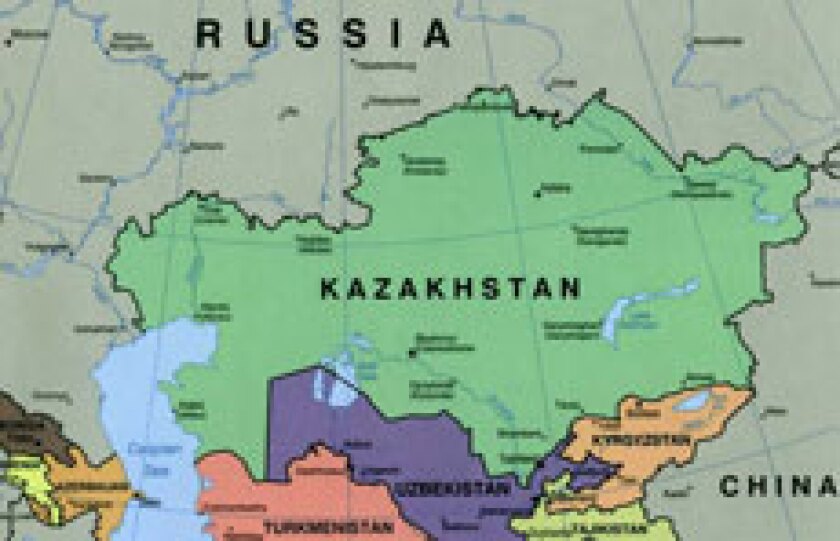In early March KazTransGas signed a quick-fire $400m loan with banks, in what was expected to be a run of Kazakh loan deals. But it has gone quiet since and the “other three Kazakh loans under discussion” at the time – which supposedly include a KazMunaiGas subsidiary — have not yet materialised.
Part of the reason for that is likely to be noises from loan bankers that Kazakh borrowers are going to have to pay more to do deals now than before, given the rising pressure on the country to devalue its currency, the tenge.
This comes after the Russian rouble’s fall last year made its exports more competitive than those of former Soviet republics. Azerbaijan, Belarus, Moldova and Turkmenistan have all devalued their currencies to adjust to this.
But whatever bankers may be saying about pricing expectations, there are other factors working heavily in the favour of Kazakh borrowers.
The most important factor is that there have been no Russian borrowers yet this year, with the market for Russian loans still widely regarded as closed. That leaves a big gap for borrowers elsewhere in the region who want to do business.
But, moreover, loan volumes in the first quarter have been down almost across the board in Europe, the Middle East and Africa. Only the Middle East has done better than the same period in previous years, thanks in large part to a few bumper deals at excruciatingly tight pricing. Africa, Central and Eastern Europe and Western Europe are way down on last years’ first quarter totals.
There are loan bankers in the market who will freely admit that they are scrabbling around for deals. And they are still at a stage of the year where it is worth trying to pump up the deal numbers to meet projected budget targets.
The simple fact is that there are not many areas of the market where borrowers have wanted to do deals. In Romania, for example, a suite of regular clients recently told their international banks that they have no major funding requirements. If something crops up they are well served by the likes of Citi, Erste Bank, ING and UniCredit, but most likely they will keep any funding exercises in the local market.
This absence of deals and search to find them has got to play into the hands of Kazakhstan. But it’s not a situation that will last long.
A host of Russian borrowers are lining up to do deals and – despite what might be said – several of them feel like they have a reasonable chance to get them done.
But even if they don’t, once bankers move into the second half of the year they will be less inclined to push for budget targets if they know they have no chance of meeting them. In other words, unless they are close, they will be less inclined to lend as the year progresses.
Armed with this knowledge — and the visible fact of Kazakhstan CDS being back below 300bp after hitting 380bp at the start of the year —there may not be a better time in 2015 for Kazakh borrowers to push for a deal, and to push back a little on price.

